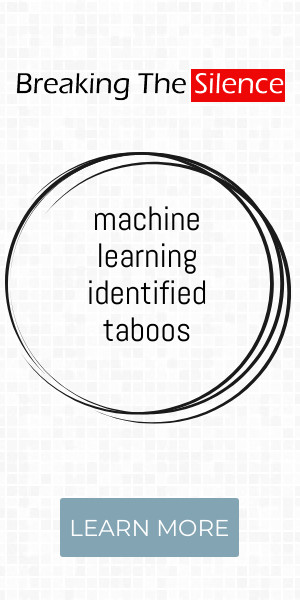Menstrual cups may be taking Western countries by storm, but conservative attitudes and virginity myths are holding back a breakthrough for the reusable devices in Indonesia and across Asia.
Experts say concerns around virginity, along with misinformation surrounding tampons and menstrual cups are a bigger concern for many in Muslim majority Indonesia as well as other parts of Asia.
Even finding menstrual cups or tampons in Indonesia‘s sprawling capital is no easy task.
Still, a tiny minority of women are taking a chance on cups in Indonesia, including Virra Alaydroes who says the devices give her more freedom to do activities like yoga and save her money in the long run.
To deal with the social challenges, some groups in Indonesia are touting reusable pads and period underwear as an environmentally conscious middle ground.
The Perfect Fit project, run by charity Kopernik, is teaching Indonesian women in rural areas how to make and sell re-usable pads, with an eye to eventually convincing them to use cups.
Canada‘s Diva, one of the biggest players in the market, says it’s planning for educational advertising campaigns in Indonesia to change the narrative.

Yet, for the 640,000 over people living with HIV in Indonesia, social acceptance and blending in still seems like a distant reality.
The fragile and contentious landscape of health care in Indonesia sees goals of social equality thwarted by discriminatory crackdowns on lesbian, gay, bisexual and transgender communities and plans for quality and accessible medical coverage pushed back by age-old preconceptions and stigmatization.
The issues with Indonesian health care are especially drastic when it comes to taboo-labeled diseases like AIDS.
An interconnected chain of social, political, cultural and economic factors reduces the quality of life of people living with HIV/AIDS including in Indonesia – particularly through persistent stigmatizing of and discrimination against PLHIV – serophobia.
The acts of the Kampoeng Sehat volunteers challenge the Indonesian status quo and an otherwise static and lagging healthcare, education and overall sociopolitical landscape.
Indonesia‘s limited view of sex education and HIV/AIDS ensues a “moral panic” that has been cited to contribute to the spread of HIV, as potential carriers avoid being identified, let alone tested.
Muslim protesters march against the LGBT+ community in Banda Aceh, on the Indonesian island of Sumatra, in 2017.
A leaked draft of a new ‘Family Resilience’ law in Indonesia has revealed plans to ban homosexuality and S&M sex, with offenders to be threatened with losing custody of their children.
Homosexuality is not illegal in most parts of Indonesia but it is widely considered to be a taboo.
Indonesian law does not protect the LGBT+ community against discrimination and hate crimes, which are common.
“It’s a very patriarchal bill and it will set back progress in gender equality and women’s rights protection,” Usman Hamid of Amnesty International Indonesia told Reuters.
KUALA LUMPUR – An Indonesian YouTube star, whose videos about being gay and living with HIV have generated millions of views, is hoping his popular channel will help fight moves by lawmakers to clamp down on the country’s beleaguered LGBT+ community.
Under a new law proposed by Indonesian legislators last month, homosexuality would be defined as “sexual deviation” and LGBT+ people would be required to be treated at rehabilitation centers.
“Homosexuality is not sexual deviation,” the 24-year-old told the Thomson Reuters Foundation by phone from his hometown in Indonesia’s West Java province on Thursday.
In 2018, he defied public hostility to became one of the first gay Indonesians to campaign on LGBT+ and HIV issues using YouTube – two weeks after he was diagnosed with the virus.
The bill has appeared on Indonesian parliament’s priority list for the 2020-2024 period, prompting criticism from human rights campaigners.
The LGBT+ community have long been largely tolerated in Indonesia, but they have faced a growing backlash since a wave of anti-gay rhetoric in 2016, with a rise in laws and raids targeting the community.
He warned widespread anti-gay biases could threaten Indonesia’s goal to end an AIDS epidemic by 2030, recalling his own experience when he sought testing at a government clinic.
“The doctor told me ‘people like you shouldn’t exist in Indonesia’,” said Saepudin.
The outlandish claim was made in a recorded interview, in response to a question about the actions being taken by the Indonesian Child Protection Commission to address teenage pregnancy.
The claims are laughable – and have since been widely ridiculed online – but they also reveal some serious concerns regarding the state of adolescent sexual and reproductive health in Indonesia.
Adolescents in Indonesia face a relatively high risk of contracting sexually transmitted infections , and girls in particular are at risk of illnesses resulting from inadequate menstrual hygiene management, as well as the risk of unwanted pregnancy, or even death from complications during pregnancy or childbirth.
Indonesia’s maternal mortality ratio is at around 177 deaths per 100,000 live births, and almost 10 per cent of maternal deaths occur among adolescents aged 15-19 years, according to national statistics.

Sexuality is a sensitive topic in Indonesia.
Pop culture provides some insights – the Netflix series “Sex Education” has become a topic of online conversation for Indonesian millennials, valued for its relaxed and humorous exploration of sex and sexuality, matters otherwise cloaked in mystery and taboo.
A film released last year called “Dua Garis Biru” portrayed the typical experience of a teenager going through an unintended pregnancy in Indonesia.
The reality is that premarital sex in Indonesia is not uncommon, even though it is not socially acceptable.
This implies that adolescents’ rights to sexual and reproductive health in Indonesia have been neglected, and highlights a failure to provide the necessary information and access to contraception.
Poor menstrual hygiene management is a known problem for girls in developing countries, including in Indonesia.
A 2015 study conducted in collaboration by SurveyMETER, the Burnet Institute, and WaterAid Australia, funded by UNICEF, found that school girls in Indonesia faced obstacles in practicing good menstrual hygiene at school.
In 2015, the Constitutional Court rejected a petition from the Indonesian Planned Parenthood Association to explicitly include sex education in the school curriculum.
JAKARTA, INDONESIA – APRIL 30: Cemetery workers place a coffin into place in an area of newly dug … graves for those suspected of dying from the Covid-19 coronavirus on April 30, 2020 in Jakarta, Indonesia.
Indonesia‘s official statistics report that nearly 800 people have died from the COVID-19 coronavirus, but a recent review of data from 16 of the hardest hit provinces suggest that the number of deaths may be well over 2,000.
Indonesia – Small-scale coastal fishing in Indonesia can benefit women nutritionally and economically, but in some areas, despite plentiful fish stocks, undernutrition is prevalent, often due to a lack of financial resources and societal taboos surrounding its consumption.
In Indonesia, the second largest producer of marine fish in the world, fish is estimated to provide up to 54 percent of dietary animal protein.
D. candidate at the Research Institute for Environment and Livelihoods at Australia’s Charles Darwin University, who led research into dietary diversity and fish consumption in Indonesia, published in PLOS ONE online journal.
In addition to assessing the quality of diets of women and children, the research focused on three communities in Komodo, a district in Indonesia’s southmost province of East Nusa Tenggara.
These taboos are passed down the generations, from mother to mother, in such a manner that a woman who eats these foods is said to be disobedient to her mother, Gibson said, explaining that mothers delay the introduction of taboo species until the child has ceased breastfeeding, eats un-mashed rice – the food staple in Indonesia – or is walking.
Through the National Movement to Accelerate Nutrition Improvement, the Indonesian government has committed to increasing nutrition outcomes, Gibson said.
“A multi-level cross-sectoral response across the Indonesian food system, beginning with the delivery of clean water, sanitation and hygiene and social and livelihood support to households in rural coastal communities, would also undoubtedly benefit nutritional needs,” she added.
These fears may soon be assuaged in Mongolia and Indonesia by a Unicef app — Oky — which helps educate girls about their bodies and understand their symptoms.
Oky was developed and tested in collaboration with 400 girls in Mongolia and Indonesia, both remotely and in face-to-face workshops.
In Cambodia it is customary to keep the first sanitary pad, and in Indonesia girls are told not to eat pineapple, eggs, peanuts, beansprouts and sweet, sour or spicy food.
Indonesian authorities complained on Wednesday that hundreds of people had refused testing for the new coronavirus as social taboos emerge as another obstacle to stopping its spread in the world’s fourth-most populous nation.
Indonesia has the highest number of reported infections in Southeast Asia, surpassing 49,000, while at least 2,573 people have died, according to official data, the highest COVID-19 death toll in East Asia outside China.
Indonesia‘s 270 million people are spread across 18,000 islands that span more than 5,000 km .
“Stigma is an indicator of how communication and information dissemination in Indonesia hasn’t been successful,” he said.
A strange and solid voice emanated recently from the University of Indonesia .
The lecturers’ defense was unexpected, not only for my alma mater but for Indonesian academia.
Yet if academics remain in their cocoons, they risk simply passing on many dominant, but not necessarily true, versions of Indonesia’s history.
Those lecturers who didn’t fit the confines of state universities sought positions at private Indonesian universities or went overseas, if they did not switch professions.
 The prevailing “truth” that relatively few Indonesian academics challenge include the “’65” – the mother of all taboo subjects referring to the failed 1965 coup, the subsequent witch hunt and massacres – and Papua’s unquestionable place in the Unitary Republic despite the Papuan people’s racial grievance.
The prevailing “truth” that relatively few Indonesian academics challenge include the “’65” – the mother of all taboo subjects referring to the failed 1965 coup, the subsequent witch hunt and massacres – and Papua’s unquestionable place in the Unitary Republic despite the Papuan people’s racial grievance.
The lecturers’ defense of the student board was especially surprising, given that Indonesian academics rarely contribute to unresolved issues regarding Papua.
Among their few contributions is the recently updated Papua Road Map by researchers of the Indonesian Institute of Sciences, which include their recommendations on addressing the fundamental problems of racism and the contrasting historical “truths” of how Papua became part of Indonesia.
Herlambang Wiratman, the president of the Indonesian Academic Freedom Caucus, said that academic freedom was no better today than it was under Soeharto, citing the new Science Law that requires permits for research on subjects deemed a threat to “national security” and “social harmony”.
This means that all efforts to facilitate freedom count; although it would not restore what historians call the “lost generation” of Indonesia intellectuals.
Lecturers and students in 1960s Indonesia were targeted in the witch hunt against suspected communists led by university administrators and lecturers, as testified in 2015 at the International People’s Tribunal on 1965 Crimes Against Humanity in the Hague.
While Australia and Taiwan are most preoccupied with climate and gender, these issues barely make the top 5 in Thailand and Indonesia, with health and poverty ranking much higher on the list.
In Indonesia, Kantar’s data suggests gender is much lower down the priority list and religious and cultural taboos mean the tampon is often cast as an enemy of the body, believed to steal precious virginity or even induce pregnancy.
Instead, for markets such as Indonesia, the right approach may be two-fold: first, innovate solutions that work with, not against, cultural and religious beliefs.
Discussions about sex and HIV in Indonesia remain highly taboo, while the limited information that exists is often unclear, not easy to digest or contradictory.
In an attempt to improve the quality of information provided to young people, the UNAIDS Country Office in Indonesia has developed Tanya Marlo, or Ask Marlo, a chatbot powered by artificial intelligence and designed to be the go-to source for all things HIV-related.
In just a few taps, Ask Marlo users can also book HIV testing appointments at health centres across Jakarta, Indonesia.
Indonesia is one of LINE’s top markets, with around 90 million users.
Upon seeing Ask Marlo for the first time, a psychology graduate from the University of Indonesia said, “It is so youth-friendly! My friends and I use LINE a lot, so this is the perfect platform for Ask Marlo.
The idea is to eventually expand to offer testing in other major cities across Indonesia.
The text of this article was generated by the Breaking The Silence system that collected 12 news articles posted on the web from January 2019 to September 2020 and clustered for the taboo subjects related to Indonesia














































































